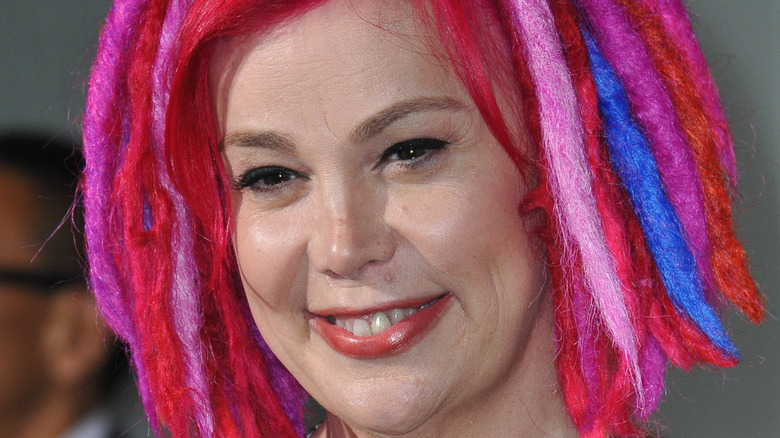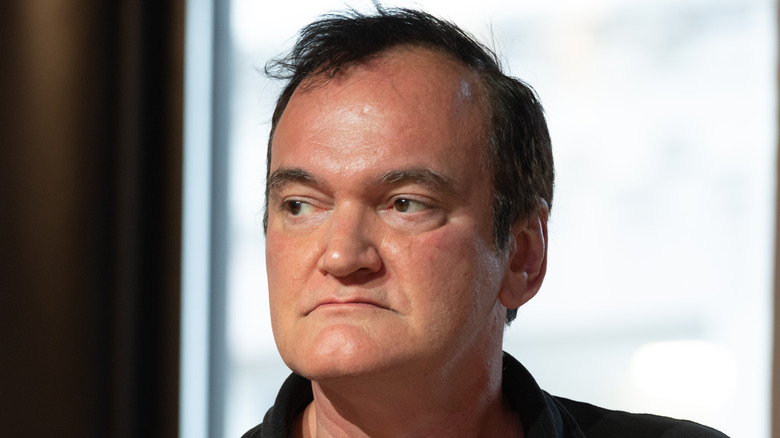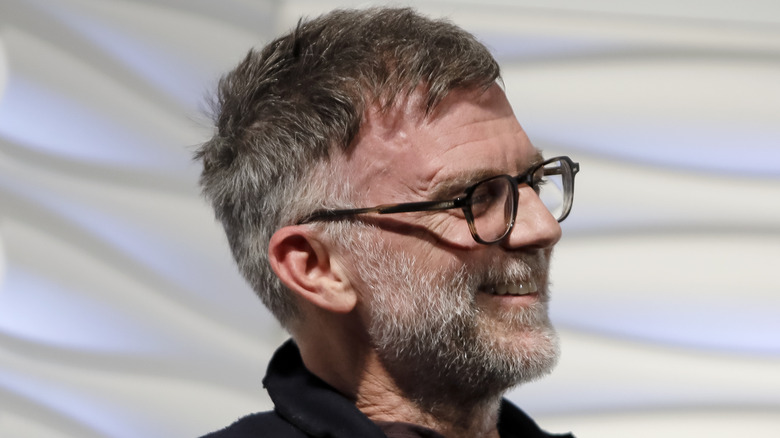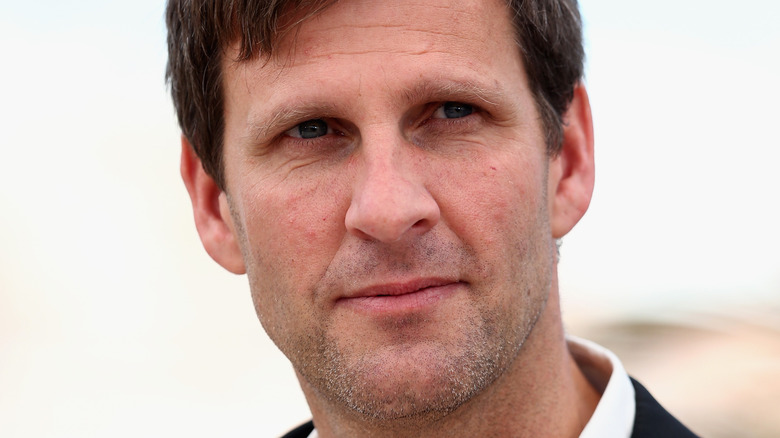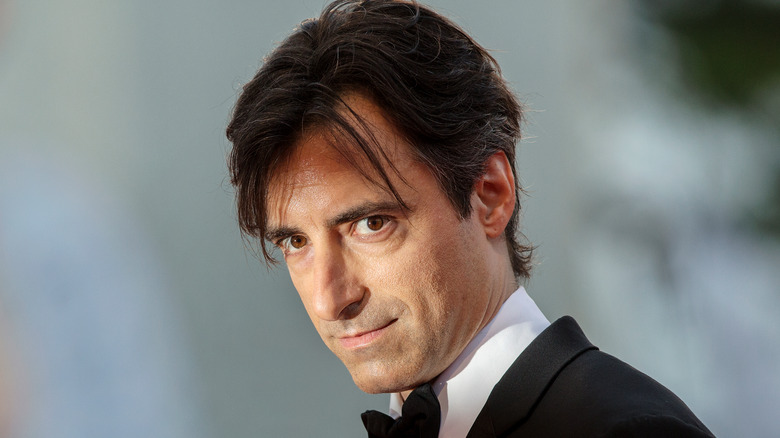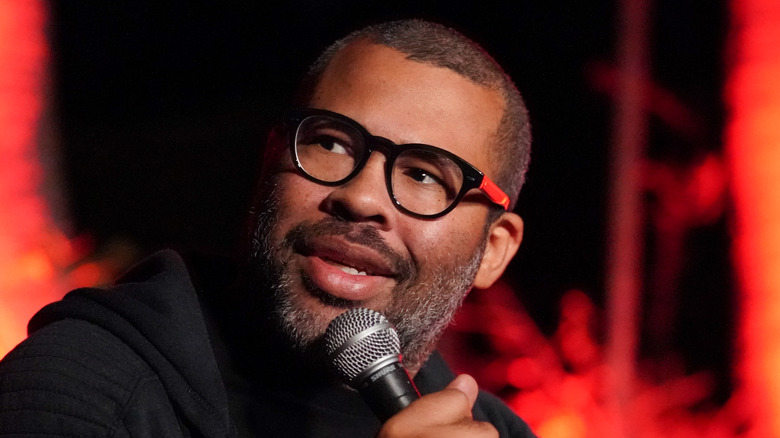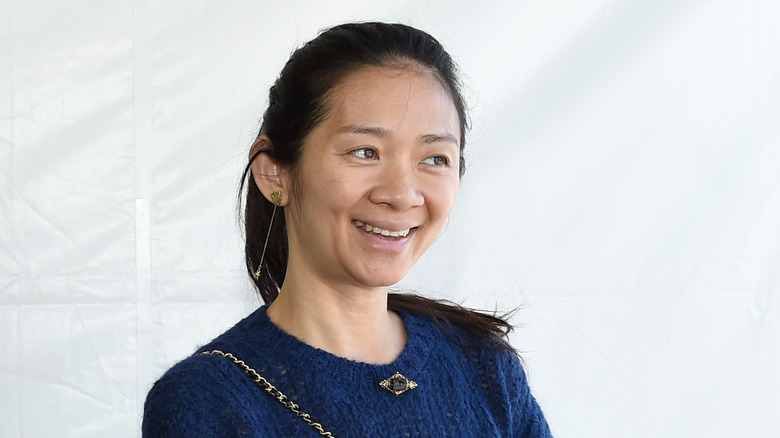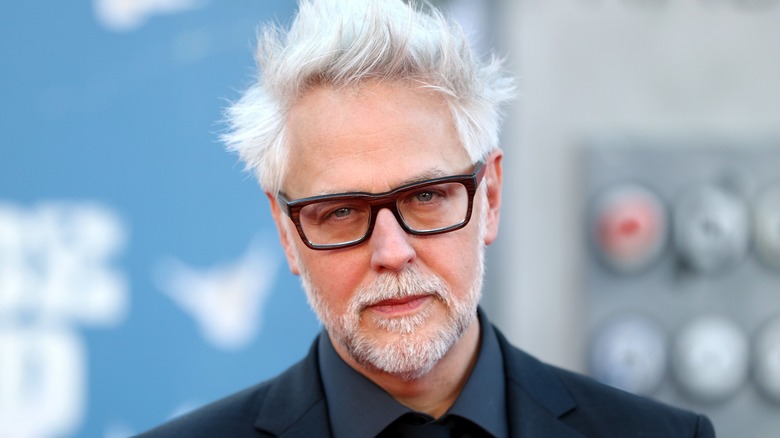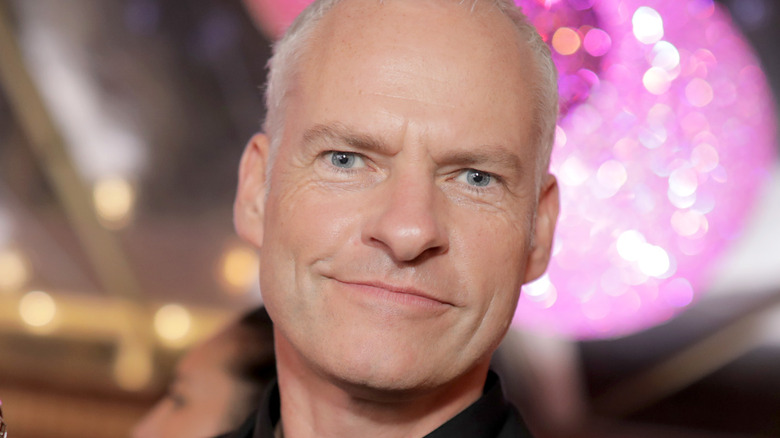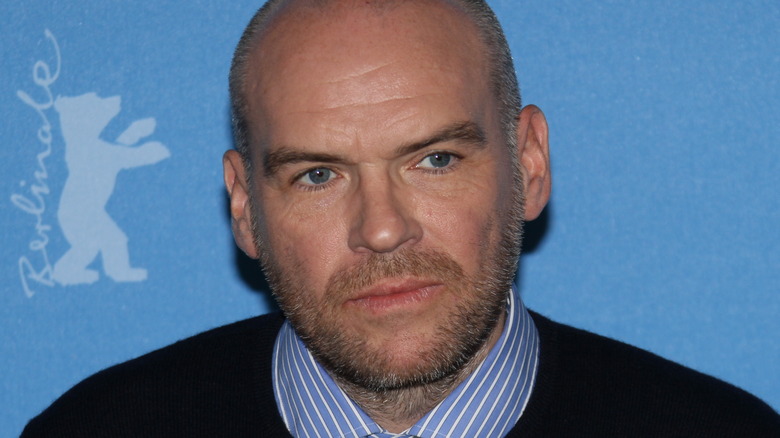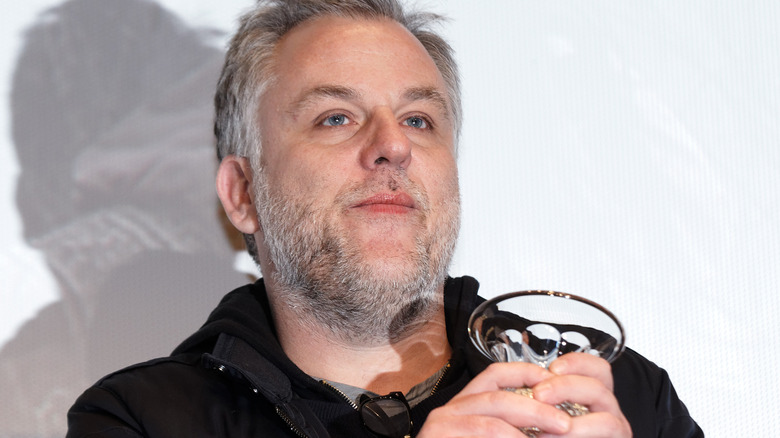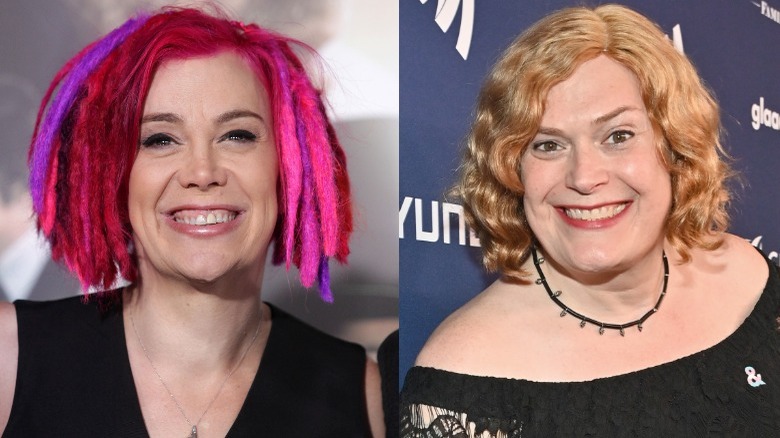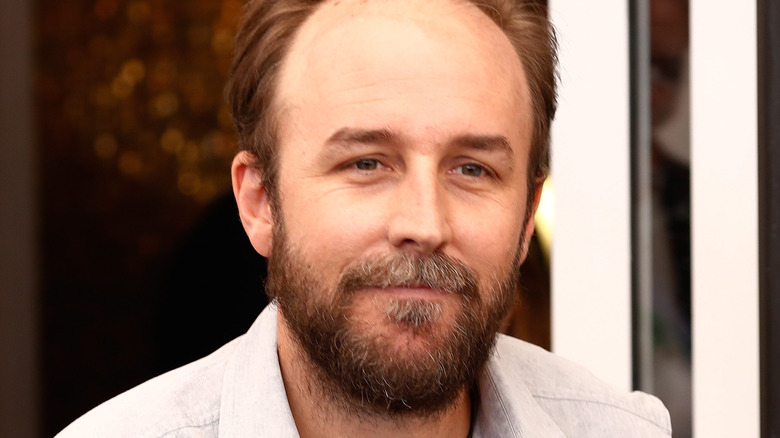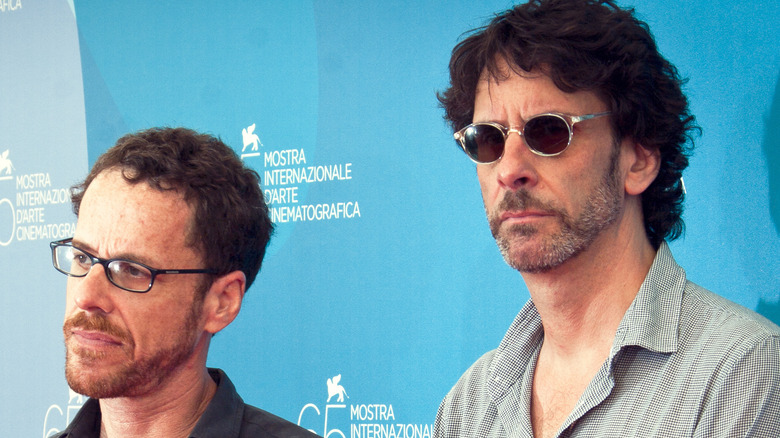Directors Who Only Direct Movies They Write
Auteurism — a critical theory that emphasizes a director's style, thoughts, and personal approach in a movie — goes a long way back in film history, and its essence is more significant today than ever. In modern cinema, directors have a crucial impact on dictating a film's outcome and reputation. Major studios often build billion-dollar franchises (such as "Star Wars" or the MCU) on filmmakers who are so highly regarded and respected that they enjoy the privilege of making almost any kind of movie with unbounded creative freedom.
Some of these artists drive endless conversations between cinephiles. They bring the utmost quality to storytelling and filmmaking that only a few can achieve. Names like Quentin Tarantino, Paul Thomas Anderson, or the Wachowskis became pinnacles of the industry, defining top-notch filmmaking for decades now. They are some of the most recognizable auteurs in pop culture, constantly bringing a distinctive style and unique approach to the game. In many cases of these auteurs, their successes have a lot to do with their insistence on directing their own screenplays.
Here's a look at a few of the directors who always write (or at least co-write) all of the screenplays they direct.
Quentin Tarantino
It's a well-known fact that Quentin Tarantino writes his own scripts, even when he's adapting a novel ("Jackie Brown"), and his writing is painstakingly specific and extensively detailed. That would make it challenging for any director to inject their own style into it — although Oliver Stone ("Natural Born Killers") and Robert Rodriguez ("From Dusk Till Dawn") have risen to the challenge, it's still rare — so it makes sense that he'd want to see his own stories brought to life. As Tarantino said in an interview with the Director's Chair, "I see the movie in my mind. Before I make the movie, I watch the movie."
Interestingly, though, Tarantino also attributed his scripting skills to the acting classes he took for six years before he began screenwriting. "Where I actually realized I had a little bit of talent at it was going to acting class," he explained. "I was always doing bizarre scenes. Little by little, I just started adding more and more to the scenes, and that was me learning how to write dialogue." That's just one of the many reasons why his approach is so impossible to imitate.
It's debatable whether he's a better writer than a director or vice versa, but his skill in creating compact dialogues is unquestionable. He also has a fearlessness about his work; some argue that his films unnecessarily include gratuitous violence and offensive language, but those are essential components of his films, like "Kill Bill" and the buckets of fake blood, "Pulp Fiction" with its offensive lines, and certainly, "Inglourious Basterds" would be less hilarious without Brad Pitt's gibberish fake Italian. Clearly, his start-to-finish process is paying off.
Paul Thomas Anderson
In his 30-year-long career, Paul Thomas Anderson has only made nine feature-length movies (so far). Yet, when it comes to the heights of filmmaking, his name is always right at the top. His features are uncompromised artistic visions — thorough character studies that dig to the very core of humans, exposing their deepest traumas and unhealed inner wounds. One could argue that Anderson's films are the closest to experiencing a novel in a visual form.
He spoke about the inspiration and where his story ideas come from in an interview about "Magnolia," saying, "What's inside me is just someone ... who's grown up on movies and television. So that's there on display, is a sort of channel-changing mentality maybe that's why there are so many different stories. Trying to reflect on TV's information overload in a movie." As a result, most of his movies are jam-packed with interwoven storylines and always adhere to his unique style of filmmaking. His filmography features the very best actors of Hollywood and has earned him multiple Academy Award nominations for both his screenplays and direction.
Anders Thomas Jensen
Anders Thomas Jensen's name might not ring familiar if you're not keen on Scandinavian films, but he's one of the few directors who keep Danish cinema at the top. Having made five features between 2000 and 2020, he helped shape contemporary filmmaking in Europe. His regular partner in crime is none other than Mads Mikkelsen, who played leading and supporting roles in all of his movies. Mikkelsen's participation certainly lures in more viewers, but what separates Jensen's work from any other is the absurd (often disturbing) yet hilarious humor he captures in his films.
Whether he makes films about petty criminals ("Flickering Lights"), self-centered, small-town butchers ("The Green Butchers), neo-Nazis and priests ("Adam's Apples"), oddball brothers ("Men & Chicken"), or a grieving and revenge-seeking soldier ("Riders of Justice"), Jensen always finds the absurdity even in the grimmest and most intense drama. His characters are often forced to face their pasts and the consequences of their poor decisions. However, through the power of dark humor and being able to laugh at their own adversity, the director masterfully guides them to a solution. In an interview with Screen Daily, he explained that his vision for filmmaking is "like a fusion kitchen when you cook Italian and Japanese... I love films that play with genre."
Noah Baumbach
Noah Baumbach's movies are often centered around neurotic, self-obsessed New Yorkers, which earns him some comparisons to Woody Allen — minus all the controversies, of course. In an interview with Indiewire, Baumbach said that he obviously related to Allen's classics as a fellow New Yorker and was heavily influenced by them growing up.
Coming from a cultural household — raised by a novelist (Jonathan Baumbach) and a film critic (Georgia Brown) — it's no surprise that the writer-director developed a strong voice as a filmmaker in the past two decades. His characters are often narcissistic and selfish, yet also inherently funny as they try to deal with some of the biggest crises of their lives. Baumbach focuses on dysfunctional family relationships and the hurdles that come with them — divorce, aging, broken bonds, etc. — which his characters struggle to overcome. Since his debut in 1995, he reached great success with his work and was nominated for three Oscars for "Marriage Story" and "The Squid and the Whale," and he is celebrated for both his scripts and his direction in bringing those stories to the screen.
Jordan Peele
Actor-turned-writer-director-producer, Jordan Peele, has quickly become a dominant voice in the horror scene. After a successful career in comedy, Peele pivoted to writing and directing films that tell all-new stories. He began to pave a new path for the horror genre that uses and emphasizes Black history inventively. In an interview with the Producers Guild of America, Peele talked about his writing process, and how he always tries to make his favorite film that hasn't been made yet.
In a roundtable conversation hosted by The Hollywood Reporter, Peele also mentioned how influential "The Stepford Wives" and "Rosemary's Baby" (both films based on an Ira Levin novel) were to him. He explained, "For me, those movies were extremely inspiring because what they did within the thriller genre was this very delicate tightrope walk. [They] sort of honored the protagonist in a way that you rarely see in the genre."
With his feature debut, "Get Out," Peele won an Academy Award for best original screenplay (with three other nominations), which was an auspicious start. His second film, "Us" was an even more complex and thought-provoking horror with a mind-bending plot and a stellar cast. It might not have been as big of a triumph as "Get Out," but critics loved it, and it was also a commercial success. His third feature, "Nope," has cemented his status as one of the most intriguing new voices in the industry.
Chloe Zhao
Chloe Zhao's name has been thrown around in recent years a lot. There are two main reasons for that: her 2020 drama, "Nomadland," not only won for best picture but also earned her an Oscar for directing. Right after that, she directed the Marvel flick "Eternals," which gained a lot of controversy among viewers and critics. The Chinese-born director's feature debut, "Songs My Brothers Taught Me," established her as a promising new talent in the independent film circle in 2015. Two years later, she further proved her outstanding filmmaking skills when she made "The Rider." What's really impressive, though, is that Zhao used non-actors in both movies — an approach rarely employed these days.
Although she writes her own scripts, they are carefully shaped around real people's lives and personalities who get the chance to tell and explore them in front of the camera (with her carefully guiding them). Speaking about the power of characters in an interview with Brut America, Zhao said, "I want people to feel things. I've had male figures in my life who are closed up, and it's painful to watch. You know, as much as we've suffered as women in our society, we are kind of being given permission to feel more. And that's a very powerful thing." However, her characters are often secondary to the landscape they live in. The director's style of compositions can express entire life stories, traumas, and family dramas without words. Her work aims to be more naturalistic than cinematic while keeping the essential components to convey the stories she intends to tell.
James Gunn
In today's pop culture, James Gunn hardly needs an introduction. As someone strongly associated with Marvel's "Guardians of the Galaxy" (still one of the most consistent franchises of the studio) and "The Suicide Squad," he's a constant subject of recurring online discussions. He started off his career with a low-budget horror, "Slither," that flopped at the box office yet earned cult status over time. His follow-up, "Super," a bonkers, strange, and ad hoc superhero movie, has walked a similar path in terms of failure and success.
However, Gunn's stardom truly began in 2014 when he co-wrote and directed a comic book movie that nobody knew was going to reach astronomical success. His writing and directing skills were on full display in the first "Guardians of the Galaxy." In a 2017 Collider interview, he went into detail about his process of diving into the story. He said, "I do an incredibly in-depth treatment for every movie. I think of writing a screenplay as creating the body of a human being and you've got to start with the skeleton, start with the bones, and you create the bones. You take a lot of time because that's the actual base of the movie and if you screw that part up, later on down the line, you're going to have a lot of mistakes." His writing method certainly fits the material, so it's no surprise that the third installment of the franchise is one of the most anticipated films for Marvel fans.
Martin McDonagh
British-Irish playwright-turned-filmmaker Martin McDonagh emerged as a promising talent in modern cinema in the mid-2000s. After winning an Academy Award for best live-action short film for "Six Shooter," his feature debut, "In Bruges," came as a blast in 2008. His method of combining dark comedy with heavy existential drama earned him an Oscar nomination for best screenplay right off the bat. That's not all that surprising, though, when you hear him talk about his screenwriting technique. In a 2018 interview with Movie Maker, McDonagh shared his writing approach: "I always jump right into writing. I never plot it out before, I never write a treatment. I always let the characters speak to each other. In the first few days, I always try to imagine the characteristics of the people or some kind of a voice. I let them just talk to each other and begin to behave. The characters create themselves, almost, and I let the story happen around them."
He is definitely a director from the United Kingdom who took the British gangster genre to another level. His biggest success came with his third feature, "Three Billboards Outside Ebbing, Missouri," in 2017. The crime drama was nominated for seven Oscars — including best film and original screenplay — eventually winning two. With just three films, McDonagh earned widespread critical acclaim and a loyal viewership as one of the most intriguing auteurs in contemporary cinema. As of 2020, he began working on a new project titled "The Banshees of Inisherin" that will star Colin Farrell, Brendan Gleeson, Barry Keoghan, and Kerry Condon.
John Michael McDonagh
As the older brother, John Michael McDonagh began pursuing his career as a screenwriter and director just before Martin did. Coming from the same household, he had a similar interest in topics with an approach that resembled his brother's but was different in detail. When asked about his writing style in the San Diego Reader, McDonagh said, "I always try to approach things obliquely, and I feel like there's always going to be humor in whatever I write, however dark the subject matter, because I think that's what life is. It's both comic and tragic.
In his first and second features ("The Guard" and "Calvary"), McDonagh very much relies on the peculiarities of Ireland and emphasizes its local humor strongly throughout. He pushes boundaries on both ends (comedy and drama) and highlights delicate issues. It's sensible that he aimed to create high quality with them rather than a commercial success. His third feature, "War on Everyone," is clearly a much lighter and more commercialized attempt that sort of backfired on him. It was a critical and commercial failure that slightly damaged his reputation. In his fourth and latest feature, "The Forgiven," he went back to making drama — adapted from a Lawrence Osborne novel — that found a better critical reception but wasn't as beloved as his early work.
John Michael McDonagh has an original voice as a filmmaker and is not afraid of experimenting with different genres. He hasn't acquired the same kind of success as his brother, but he's definitely one of those directors worth paying attention to in the future.
Pascal Laugier
French filmmaker Pascal Laugier is one of the most controversial directors in contemporary horror. As someone strongly associated with the New French Extremity movement, his approach to filmmaking is as uncompromising, gory, and eerie as it gets. Mostly known for his second feature, "Martyrs," a brutal torture flick that raises the bar to stand out even in a genre constantly surrounded by shock-value, Laugier doesn't make movies for the squeamish.
In an interview with Rue Morgue, the director talked about why his characters go through so much violence and physical pain. He said, "It all comes with the subject, and it's a writing process. I could see myself making a film with a more joyous, 'fun; form of violence if I find that it fits the subject matter." He continued, "I've got no dogmas, no hard principles. It just so happens that 'Martyrs' and 'Incident in a Ghostland' were written while I was in a state that demanded that I invest myself completely alongside my characters; that I understand the tragedy of what they were going through." Clearly, that means both writing and directing those stories.
Laugier's big Hollywood break (and dream project) could've been the remake of "Hellraiser" — which he was set to direct back in 2009, but eventually left the project due to creative differences with the studio. He hasn't made any movies since 2018, and there isn't any news of him working on a new project whatsoever.
The Wachowskis
Every movie fan knows the Wachowskis by now. Their second feature, "The Matrix," is a treasure and cultural milestone that influenced (and still does) the entire industry and served as inspiration for many filmmakers. In a Q&A at the 21st Internationales Literatur Festival, Lana said that "The Matrix" was "designed from the beginning like a piece of music, or a philosophical argument."
"We wrote it as a very elegant structure, which was dialectical in nature," she added. Arguably, it's their best film, a masterpiece they likely won't ever be able to replicate. Yet, it's not the only movie that defines them when it comes to filmmaking.
The Wachowskis' other features might not be as well-regarded as "The Matrix" series, but their views and adoration for the medium are undeniable. Whether we talk about "Speed Racer," "Cloud Atlas," or "Jupiter Ascending," the way they capture humanity with unbounded visual imagination and empathy comes through in every blockbuster they make. Although these flicks are often over-the-top, messy, and incomprehensible, they never lack the ambition to be something fresh and original from start to finish.
Sofia Coppola
Being the daughter of a legendary director (Francis Ford Coppola) who made cinematic classics like "The Godfather," "Apocalypse Now," or "Bram Stoker's Dracula," it's no surprise that Sofia Coppola became a quite influential filmmaker in her own right. She's developed a quirky and contemplative voice in her films, often examining a similar background and environment she grew up in. Many of her characters are surrounded by fame (and study the emptiness it causes them), re-examining their success and whether they deserve all that attention the world gives them. That said, Coppola still finds the writing process the hardest according to an interview she gave to Angelika Film Center & Café. She said, "I procrastinate a lot, and it's really hard [for me] to be disciplined."
Her second feature, "Lost of Translation," was her biggest triumph, beloved by critics and audiences. It reached stunning numbers at the box office, making over $118 million on a $4 million budget. That movie gave her recognition and a promising future as a newcomer in modern cinema. But she didn't stop there. The projects that followed "Lost in Translation" explored a variety of topics while keeping a visual flair and tone that's easily recognizable. Her work isn't for everyone, but cinephiles who prefer slow-paced, ruminative, and eccentric dramas will surely appreciate what she brings to the table.
Derek Cianfrance
Hailing from Lakewood, Colorado, director Derek Cianfrance showed up on the radar with the widely celebrated romantic drama "Blue Valentine" in 2010. It became evident then that Cianfrance is interested in realistic, family-oriented stories and how the decisions his characters make affect their lives in the long term. In an interview with We Are Cult, he explained more of this in detail. "I make stories about families and the secrets kept within the confines of a home. I'm an active participant with each film that I make. As a kid, I took as many pictures as possible, and I was really interested in photography, and observing people — mostly my family — and how they interacted with each other within our communal environment."
As haunting of a picture "Blue Valentine" is, it perfectly demonstrates the themes — love, separation, and the consequences of life choices — he tries to capture in his work. His second film, "The Place Beyond The Pines," went a step further to showcase how our life choices end up defining the lives of our children and grandchildren on a grand scale. This artistic view also rings true in his romantic period drama, "The Light Between Oceans," and his HBO mini-series, "I Know This Much Is True."
The Coen Brothers
Ethan and Joel Coen, two Jewish brothers, have been making movies together for nearly four decades. Their style is a sort of cinematic tour-de-force, combining drama with absurdity and slapstick humor. They're among those few auteurs that successfully merged an arthouse approach with entertainment, appealing to a large audience on both ends of the spectrum. In an interview with Uncut, Ethan talked about the process of how they approach writing a new script saying, "I don't know, we have a method. We show up at the office. That's about the extent to which it's been formalized, asystematised. We show up at the office and talk a scene through. We do it together. We don't outline, so we don't have prospective tasks to divide up. It's just we start at the beginning and talk the first scene through, write it up, proceed to the next."
The two won four Academy Awards for directing, writing, and best picture (three of those for "No Country For Old Men"), and garnered numerous nominations for various awards. That said, one can't claim that their films are for everyone. Their topic and subject choice varies with each project, and it's almost impossible to predict what they bring us next. After all, they aren't called genre-busters for no reason.
